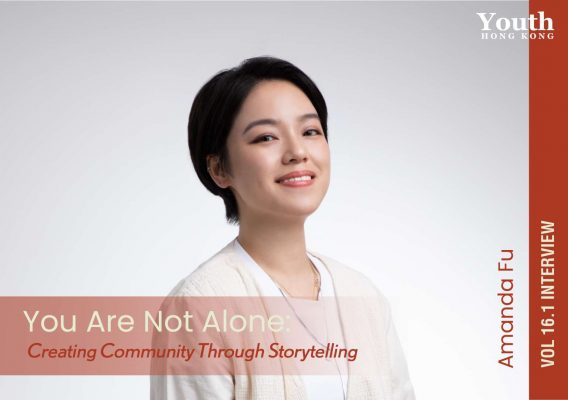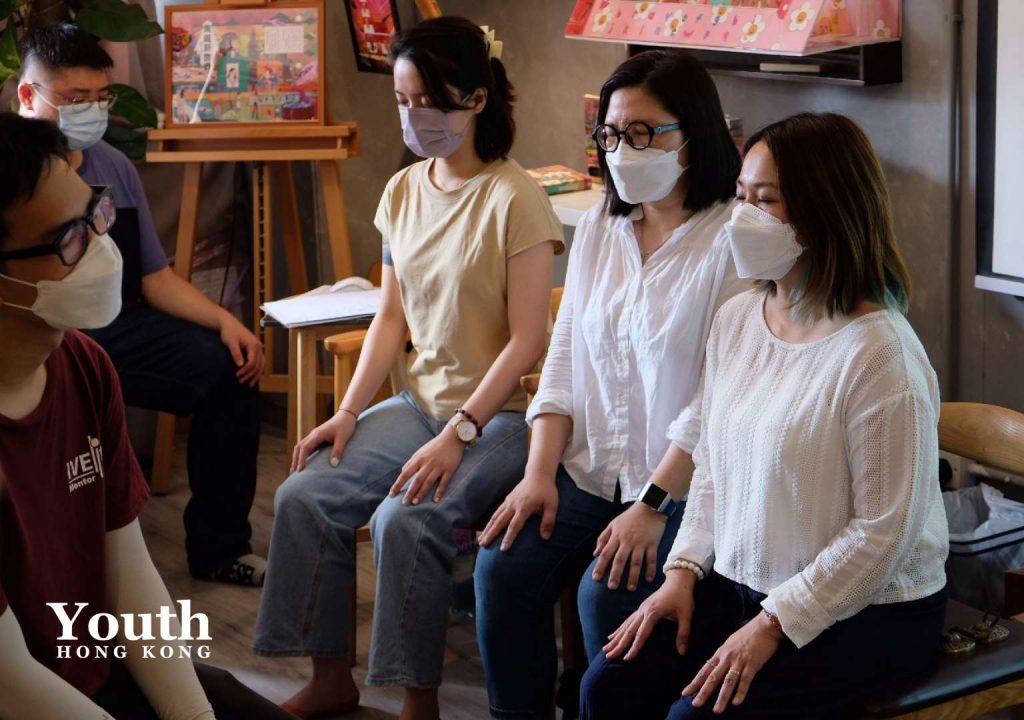//vol.16-1 Interview: Amanda Fu
You Are Not Alone:
Creating Community Through Storytelling
Believing in the power of storytelling, Amanda Fu, a clinical psychologist and core member of StoryTaler, hopes to build a community among those undergoing mental health challenges and share stories that resonate and connect people.
This personal narrative, shared by Bonny, who battled depression for decades and later worked as a Peer Support Worker, was posted on StoryTaler, an online platform that shares stories related to mental health. Backed up by studies on stigma reduction, the platform was born from the simple idea that sharing stories was a way to help people understand what mental health was all about.
Since StoryTaler’s Facebook account was set up in May 2015, hundreds of stories, both sad or uplifting, have been shared. Four years later, in 2019, StoryTaler, which was co-founded by Professor Winnie Mak of The Chinese University of Hong Kong (CUHK) and Clinical Psychologist Dr Amanda Li, became a social enterprise with the aim of further promoting mental health and reducing psychiatric stigma in the community.
Amanda Fu was involved in this project as a research assistant at CUHK. Realising the paywall and limited public access to academic research, she and other team members aspired to bridge the knowledge gap on mental health. Now a registered clinical psychologist, Amanda believes in the power of sharing three-dimensional perspectives to connect people and spread awareness.
“When discussing people with lived experience, we tend to focus only on their illnesses. Beyond the diagnoses, there are so many other aspects about that person. In our daily lives, we tend to exaggerate the differences while ignoring the human side and what we have in common,” she said.
While acknowledging an improved social awareness regarding mental health in Hong Kong, Amanda noted that there is “still a long way to go,” despite the decreasing social taboo in talking about mental illnesses as compared to decades ago.
She noted that the negative descriptions of people with mental illness persist, with a significant portion of the population unwilling to live in the same community with those experiencing mental disorders. Workplace attitudes toward mental health breakdowns also need to be improved. “In the workforce, a staff’s request to take a mental health break is, more often than not, regarded as an excuse not to work,” she added, noting that the stereotypes imposed by oversimplified descriptions from individuals and news media remain prevalent.
Young people in Hong Kong, said Amanda, are often being tagged as a “vulnerable” generation, with few people actually realising the mental health challenges stemming from a sense of powerlessness in a seemingly uncontrollable environment. She stressed the importance of sharing stories as mirrors that can reflect deeper societal issues and help people find common cause and support.
“When most shared stories are about success, we share stories that discuss struggles and oppressions that are often concealed.”
“We reveal these experiences of individuals in the community, in the hope of eliciting reflection and discussion of mental health challenges as beyond individual responsibility.” She said the hidden messages reflected society’s universal problems, such as inequality and a sense of helplessness must not be neglected.
Apart from the experiences shared through StoryTaler, stakeholders, including the government, companies, and organisations, can gain insights and learn from the stories of those who feel supported and empowered, enabling them to think about how better to create a safer environment where individuals in need can seek help while also feeling respected.
As the former Project Manager of the Hong Kong Jockey Club’s TourHeart+ Project, which adopted the latest technology and the online stepped care model, a mental health delivery and monitoring model which aims to provide the most effective treatment intensity depending on the individual’s condition and needs. Amanda recognises the role of technology, such as generative AI and VR, in facilitating future clinical practices, providing more personalised services, and making clinical services more accessible. However, she added that it is important to constantly evaluate the effectiveness of the tools in the market.
Through StoryTaler and other projects that she’s currently involved in, Amanda desires to continue promoting awareness, engaging the community, and spreading the voices that are often unheard.
“The sharing of stories very often finds resonance with those that hear or read them,” she said. “My goal is to foster a sense of belonging, letting people know that they aren’t alone in their struggles. There is no right or wrong. It is the sharing of real-life stories that matter.” ■




